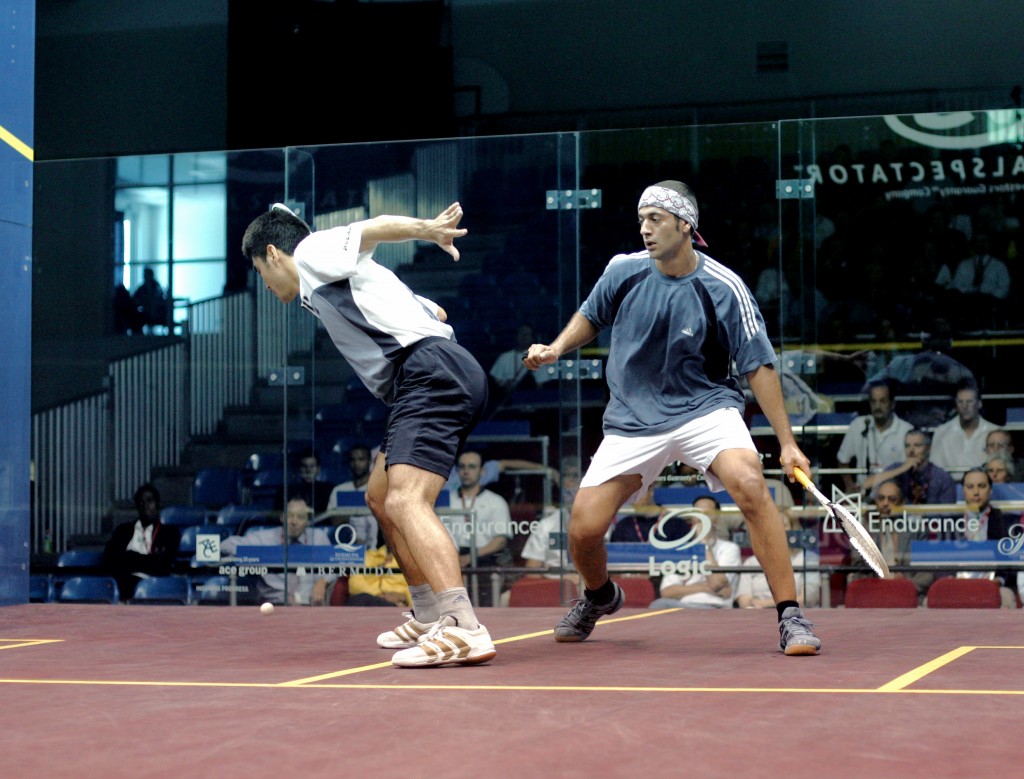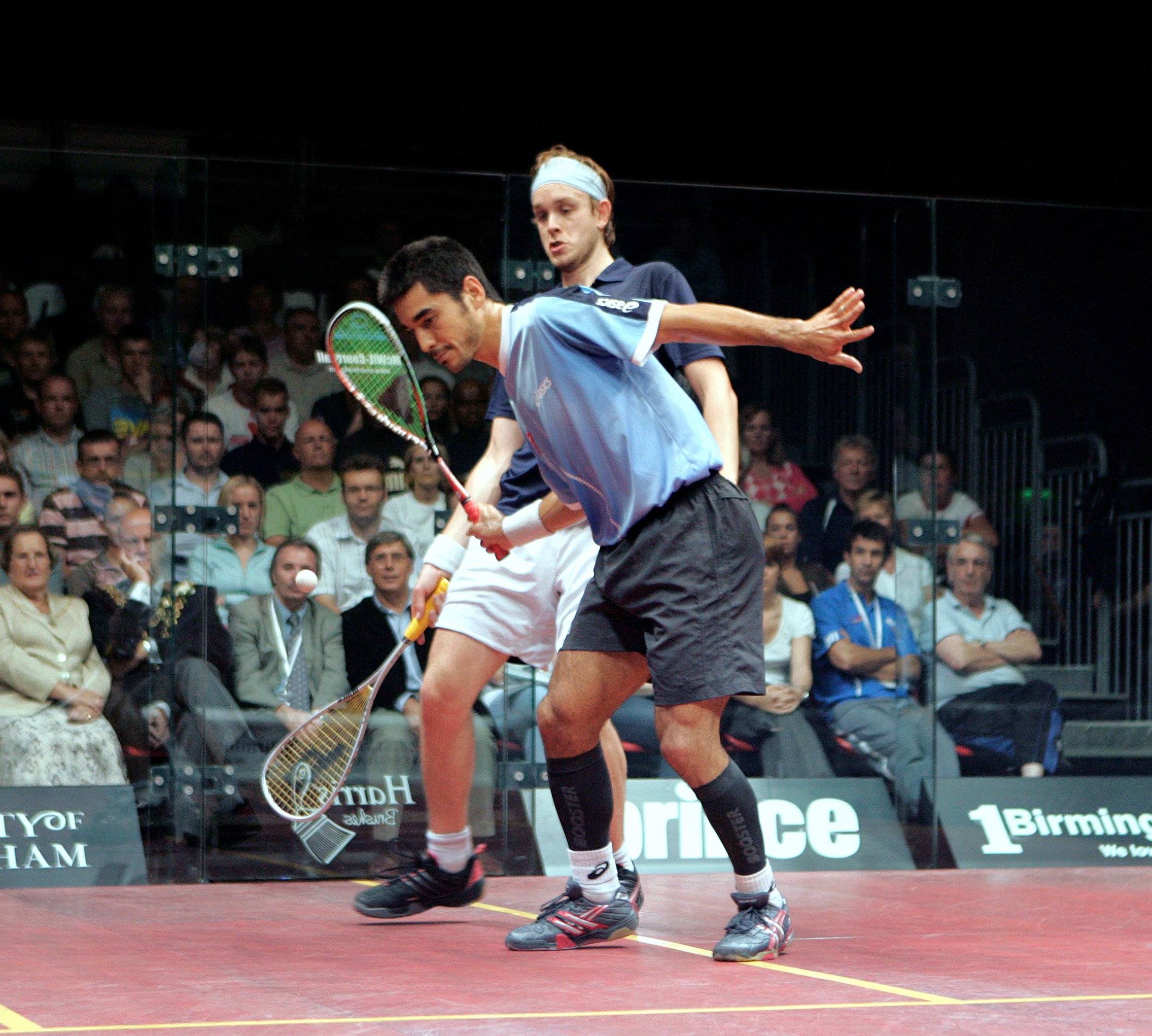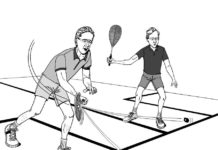By Rod Symington, WSF Referees and Rules Committee
We all know that the biggest problems on the squash court result from interference: There are just too many players who, after they have hit the ball, do not get out of the way to give their opponent free access to the ball and the room to swing the racquet and hit the ball to any part of the front wall.

Why is this? Why is it so difficult for so many players to grasp the fundamental principle of squash? As I have written before in this column, squash needs only one rule: Hit the ball and get out of the way! This means not only giving your opponent a direct, unobstructed path to the ball, but also includes staying well clear of your opponent’s swing-path and giving him or her the entire front wall to hit to.
Sometimes, of course, a player is physically not able to clear—either because of a lack of speed (old age!) or because the opponent’s shot was so good that the player is put under pressure and cannot recover quickly enough in order to clear. But in such cases the outcome of the rally must be a stroke to the incoming striker—with no argument from the opponent who was clearly at fault. It is very simple: Get out of the way…or lose the rally.
What a blessing it was, therefore, to be invited in August to attend the Caribbean Squash Championships in Kingston, Jamaica, where I witnessed squash being played in the finest spirit of the game, with refereeing of a consistently high caliber. All the players I observed made every effort to clear the ball after hitting it and stayed well away from the opponent’s swing.
The referees (almost all of them players) understood these fundamental concepts, and anyone who did not abide by these two principles was penalized (by the award of the stroke to the opponent). If anything, the requirement to be out of the way of the swing-path was interpreted more stringently than anywhere else I have been. If the non-striker was anywhere near the striker’s swing-path, the referee inevitably awarded a stroke.
 There was another aspect of these Championships that was a very pleasant surprise. The conduct on court of all the players was impeccable. Only once did I see a player drop his racquet on the floor in disgust at a bad shot—and immediately he apologized to the Referee, before the latter had time to issue a Conduct Warning. This was the only incident in ten days of matches!
There was another aspect of these Championships that was a very pleasant surprise. The conduct on court of all the players was impeccable. Only once did I see a player drop his racquet on the floor in disgust at a bad shot—and immediately he apologized to the Referee, before the latter had time to issue a Conduct Warning. This was the only incident in ten days of matches!
The secret, as I discovered, was that Caribbean squash players have had the fundamental principles of squash impressed upon them since they first picked up a squash racquet. From the first day they take the court they learn about the obligation to clear and, when refereeing, the need to punish the failure to do so.
There is clearly a virtue in designing junior programs not merely to teach budding squash players the correct techniques and tactics, but also to incorporate into such a program a demand that all players learn the basic principles of avoiding interference (i.e., clearing)—and that they apply these principles both while playing and refereeing.
There is a lesson here for all countries where squash is played: Teach the juniors that their primary obligation is to clear after they have hit their shot, and teach them to apply this principle rigorously and consistently when they referee. It would also clearly be beneficial to insist that players not argue when the call goes against them.
I am confident that such a program would greatly reduce the number of problems later in life. In the over-40s and over-50s there would be far less interference and far fewer arguments!





